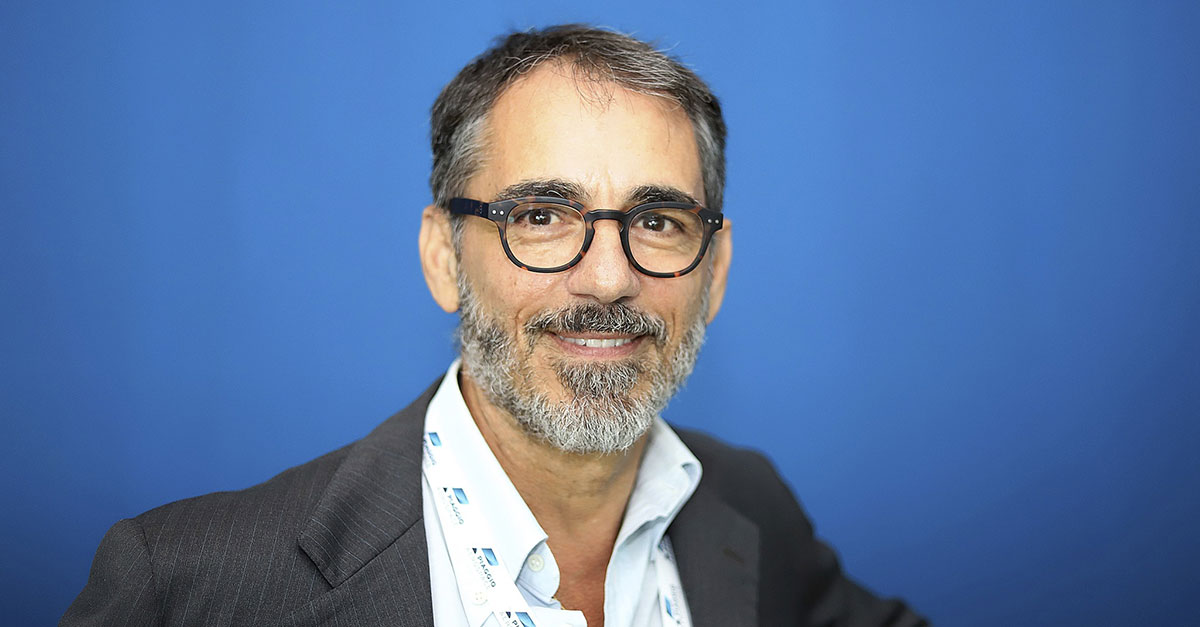Meet EBACE2019 Panelist Luciano Luffarelli, Piaggio Aerospace
May 2, 2019

Luciano Luffarelli, head of external communications and government affairs at Piaggio Aerospace, will take part in a panel discussion on Wednesday 22 May about crisis communications. Communication crises are often extremely stressful periods during which a multitude of decisions must be taken – and quickly. Working with its Safety Committee, EBAA has developed a crisis communications manual to help member organizations, of all shapes and sizes, manage best a crisis.
The session will be moderated by Taunya Renson-Martin, strategic communications advisor for EBAA. In addition to Luffarelli, panelists at this session include Marc Cornelius, from 8020 Communications; Dan Hubbard, senior vice president, communications for NBAA and Frederique Luca, senior manager, communications for EBAA.
Below is a Q&A with Luffarelli to learn more about him and what he will discuss during his panel, which takes place from 10:00-11:00 in Hall 3, Room Q.
![]()
Q. Mr. Luffarelli, could you briefly introduce yourself?
I am an adjunct professor in crisis communications at the Università di Lingue e Comunicazione (IULM University) in Milan. Although I’m relatively new to business aviation, I have an extensive background in business and finance journalism and as a communications professional in various fields.
In my role as head of external communication and government affairs at Piaggio Aerospace, I am responsible for the company’s interactions with the media and the public about our work in business aviation, including through events like EBACE, as well as our unmanned aerial systems for the defense sector.
![]()
Q. You’ve been asked to participate in an EBACE2019 session focused on crisis communications in the business aviation industry. What is your organisation’s involvement in this area?
Crisis communications is a very fluid and complex topic. There are no fixed roles; it is about drawing from your experiences to help you to understand and better manage a crisis. You will never be an expert solely in crisis communication, and it’s vital that any communicator be able to keep their minds open, read the situation and understand reactions and responses.
In my course at IULM, I address how professionals must draw from all aspects of their experiences in their respective fields in order to manage a crisis situation, and to be able to consider all points of view. Among the topics we cover are drafting a crisis response manual and preparing your team on crisis communications procedures, how to utilize social media and building trust with the audience.
![]()
Q. What do you hope to accomplish by participating in this panel? What do you expect?
I think participating in a panel like this shares many similarities with teaching a class, which is always a very interesting experience. It’s not only important to share your experiences, but also to gain feedback, hear the perspectives of others and to learn from them. I expect to learn from the other panelists, as well as from the audience’s comments and questions.
![]()
Q. How do you think the business aviation community has evolved in the last 12 months? Any particular challenges you want to highlight?
One emerging challenge I’ve seen throughout many industries is the spread of populist sentiment around the globe.
Over the past few months, I’ve studied the public response to the partial collapse last August of the Morandi Bridge in Genoa that claimed 43 lives and injured 16 others. The company charged with maintaining the bridge is owned by [a family recognized for their popular international clothing line] and there has been a very strong reaction against them from Italian governing parties that have portrayed the family as elites taking money from the people and neglecting their responsibilities to the public.
That is a sentiment we also continue to see with business aviation and its portrayal as an industry dominated by the rich. Populism creates difficulties when managing a crisis because it is fueled by emotional responses, undermining reasonable conversation.
![]()
Q. Take our three-word challenge: pick three words to describe the future business aviation industry.
Environment, technology and design. There are many opportunities as well as challenges within each of those aspects for the industry.
![]()

